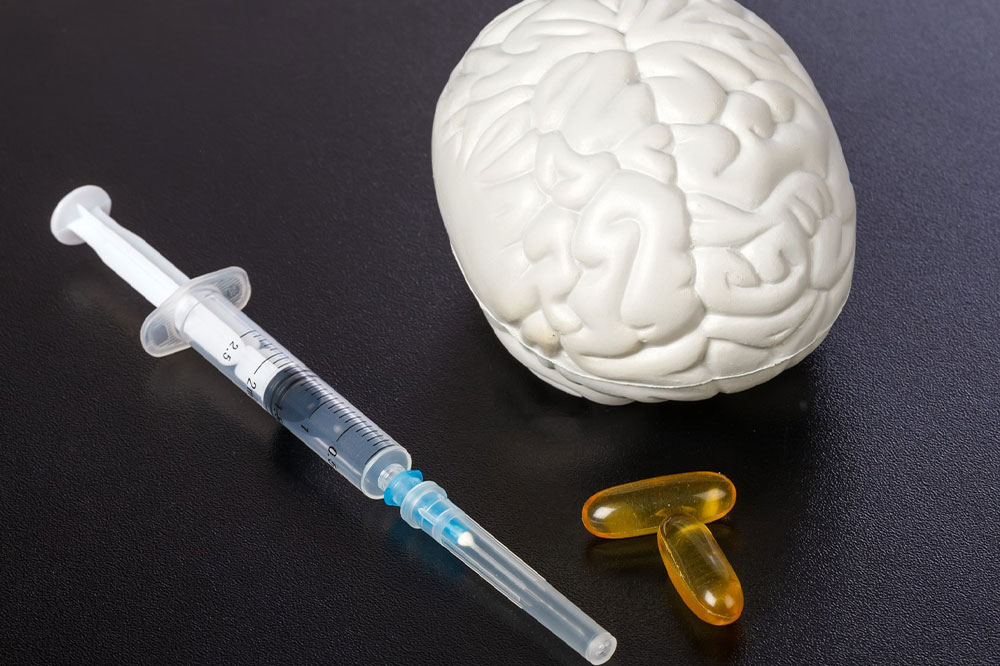
4 Essential Vitamins to Manage Schizophrenia
Schizophrenia is a chronic brain disorder that causes symptoms like delusions, hallucinations, disorganized speech, troubled thinking, and a lack of motivation. Apart from medical treatments, the right food, and nutritional supplements gained from it, plays an important role in managing schizophrenia symptoms. This article explains how different vitamins help in dealing with the symptoms of the disease.
4 vitamins to help manage schizophrenia
1. Vitamin D
Vitamin D plays an important role in neuroplasticity, neurotransmitter biosynthesis, and neuroprotection, which are essential in deciding the severity of schizophrenia. It also plays a major role in reducing oxidative stress and inflammation caused by free radicals that can worsen the condition’s symptoms. Statistically, it has been observed that babies with low levels of vitamin D are at higher risk of suffering from schizophrenic symptoms later in life. So, it is important to include this vitamin in your daily nutritional supplements. Some foods rich in vitamin D include fatty fish, cod liver oil, egg yolks, mushrooms, fortified foods, dairy products, freshly squeezed orange juice, cereals, and oatmeal.
2. Vitamin B
It was found that patients who took optimum doses of B-vitamins like B12, B8, and B6, in addition to their medications, experienced a significant reduction in the symptoms of schizophrenia. These vitamins and supplements were helpful when they started having them early in their illness. Your genes also play a part in managing schizophrenia symptoms. Researchers suggest that there is a link between a gene change that helps the body process vitamin B9 (folate). It is found that patients who have the gene change showed a bigger drop in negative symptoms when they included B vitamins in their daily meals. Moreover, including foods rich in vitamin B (Niacin) in daily meals can reduce the overall oxidative stress in the body due to the free radicals, which can further manage symptoms efficiently. Foods for schizophrenia thus include items such as milk, eggs, chicken and red meat, offal like liver and kidney, fatty fishes, shellfish like oysters and clams, dark leafy green vegetables, beans, blackstrap molasses, and wheatgerm are rich in vitamin B.
3. Vitamin E
Doctors recommend treating people with schizophrenia using antipsychotic drugs. These medicines can have side effects like tardive dyskinesia (TD), which causes uncontrollable stiff and jerky movements of your face. However, including vitamin E in daily meals may help protect patient against TD. Vegetable oils such as wheat germ, sunflower, safflower, and corn, nuts such as almonds, peanuts, and hazelnuts, and green leafy vegetables are a great source of vitamin E that can help manage schizophrenia symptoms.
4. Vitamin C
Deficiency or low levels of vitamin C have been linked to depression and cognitive impairment. This can increase the risk of suffering from schizophrenia. Vitamin C contains ascorbic acid, which helps in modulating neurotransmitter synthesis in the brain, which is essential in reducing or controlling schizophrenia symptoms. Hence, including foods rich in vitamin C can reduce the risk of suffering from schizophrenia. Citrus fruits, peppers, strawberries, blackcurrants, broccoli, and brussels sprouts are some of the foods that are rich in this nutrient.


